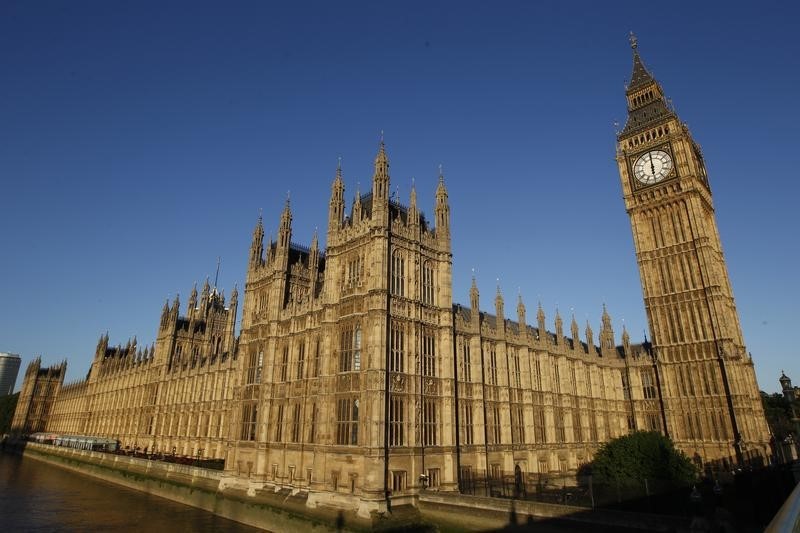LONDON (Reuters) - Local authorities and public sector organisations in Britain will be prevented from boycotting Israeli suppliers under new government rules, and those who do could face severe penalties, the government said on Wednesday.
Apart from where it has put legal sanctions, embargoes and restrictions in place, procurement boycotts by public authorities were "inappropriate", the Cabinet Office said in a statement.
"Boycotts undermine good community relations, poisoning and polarising debate, weakening integration and fuelling anti-Semitism," it said.
The government said the World Trade Organisation's Government Procurement Agreement required signatories to treat suppliers equally, and therefore any discrimination against Israeli suppliers would be in breach of the agreement.
While not a criminal offence, those in sectors such as the health service, local authorities and some university student unions imposing boycotts could face penalties including fines and contract cancellations, the government said.
Cabinet Office Minister Matthew Hancock, who will visit Israel this week, will say such boycotts need to be challenged.
"The new guidance on procurement ... will help prevent damaging and counter-productive local foreign policies undermining our national security," he will say, according to comments released in advance by his office.
In 2014, the city council in Leicester in central England agreed to boycott produce from Israeli settlements.
Under European Union guidelines issued in November, products made in settlements on Israeli occupied lands must be labelled as such, rather than carry a "Made in Israel" label. The EU considers settlements illegal under international law.
Opponents of the labelling initiative fear it will boost the Palestinian-led Boycott, Divestment and Sanctions movement, which campaigns for a boycott of all Israeli goods and questions Israel's legitimacy.
